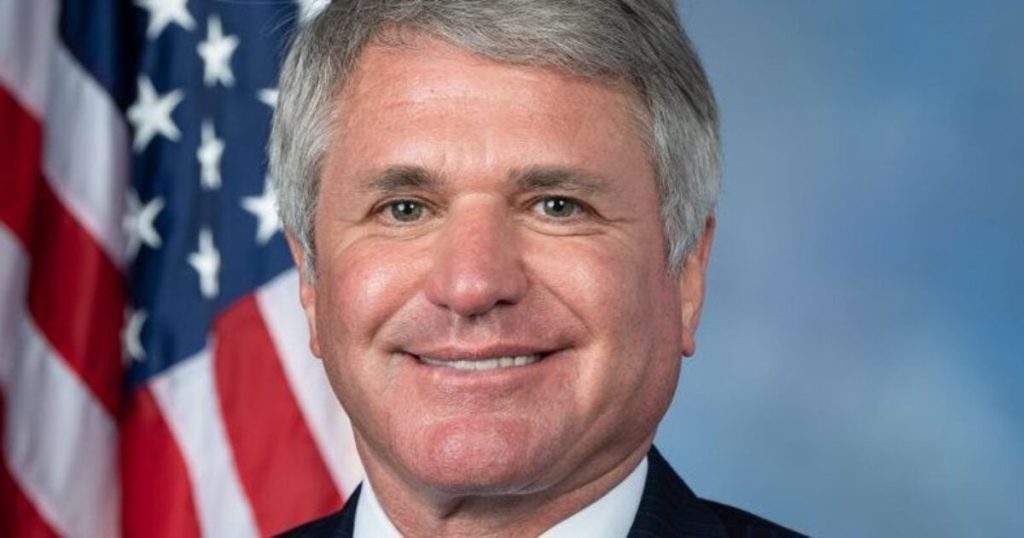This story originally was published by Real Clear Wire
By Susan Crabtree
Real Clear Wire
House Republicans who have led a nearly two-year investigation into a $500,000 State Department grant to an organization that promotes humanism and secularism are pressing the agency to conduct more diligent oversight after it admitted that the organization may have misused taxpayer funds.
Rep. Mike McCaul, a Texas Republican who chairs the House Foreign Affairs Committee, and Chris Smith, a New Jersey Republican who heads the panel’s human rights subcommittee, have accused the State Department of trying to promote atheism overseas under the guise of advancing religious pluralism, a longtime U.S. foreign policy priority. Rep. Brian Mast, a Florida Republican who chairs the panel’s oversight and accountability subcommittee, has also helped spearhead inquiries into the grant.
For more than a year, the trio has been investigating the decision-making behind the State Department’s April 2021 solicitation bid for a $500,000 grant titled “Promoting and Defending Religious Freedom Inclusive of Atheist, Humanist, Non-Practicing and Non-Affiliated Individuals.” The agency awarded the grant to Humanists International, or HI, an organization aimed at promoting humanism, an outlook and system of thought attaching prime importance to human effort rather than divine or supernatural powers.
In a letter sent to Deputy Secretary of State Richard Verma Wednesday, McCaul, Smith, and Mast charged the State Department with engaging in a “pattern of obfuscation and denial” throughout the investigation in order to “expand atheism networks” overseas. The First Amendment’s Establishment Clause of the Constitution bars the use of tax dollars to promote theocracy, a specific religion or belief system.
It was not until Foreign Affairs Committee staff contacted the HI to schedule a transcribed interview, and the organization retained legal counsel, that the “true scope” of the grant’s programming was revealed, the GOP House members asserted. HI’s attorneys contacted the State Department and admitted it had provided the wrong slides presented during its training session in Nepal.
“Legal counsel for the grantee uncovered in a matter of weeks what the Department obfuscated, misrepresented and denied for years,” they wrote, expressing skepticism about the agency’s stated commitment to recoup any misused funds and take action to bar HI from further State Department grants.
“We do, however, appreciate your statements, and we expect to be informed fully and without delay of all developments in this matter,” they continued. “The Department can reasonably expect congressional oversight of grant funding to continue since the need for it is all the more pressing in light of the recent revelations.”
According to its website, HI promotes “human-rights priorities based on humanist values at international organizations,” including the United Nations. It also champions the rights of individuals persecuted or discriminated against for failing to adhere to a country’s predominant religion or those who face harsh penalties under their country’s blasphemy and anti-conversion laws.
A statement on HI’s website praises a Nigerian court for upholding the appeal of Mubarak Bala and reducing his prison sentence from 24 years to five years for violating the country’s blasphemy laws. In 2020, Bala was arrested in northern Nigeria, where Islam is the government’s dominant religion and thousands of Christians are killed each year, for a series of Facebook posts expressing his humanist beliefs.
The latest war of words comes after the State Department acknowledged in late April that the agency had provided the House Republicans with the wrong PowerPoint slides about what HI was using U.S. funds to accomplish.
Naz Durakoglu, the State Department’s assistant secretary for its bureau of legislative affairs, notified McCaul that HI had recently contacted the department to say it had initially provided the wrong slides about the information conveyed at training sessions the grant funded. The agency then passed the wrong slides on to the committee in response to its probe.
“This new information directly contradicts Humanists International’s previous representation to the Department that the slides it had earlier provided were the ones used at the training,” Durakoglu wrote to McCaul in an April 29 letter, noting that the “department is deeply concerned about this development.”
The State Department stressed that it’s taking “immediate action” to request additional information from HI to ensure its work complies with federal laws and regulations.
“Should the Department determine that any such charges were not in accordance with applicable statutes and regulations, including activities outside the grant agreement, it will take all necessary actions to recoup misused funds” and take steps to bar HI from being eligible to receive federal funds in the future, Durakoglu wrote. He also noted that it would refer any misrepresentations HI made to the State Department Office of Inspector General for further investigation.
But McCaul, Smith, and Mast aren’t convinced the State Department is acting in good faith, considering that the agency had pushed back against their concerns for more than a year. The House Foreign Affairs Committee obtained the PowerPoint slides from the actual HI training sessions and argued they show that only humanists or atheists attended the sessions, instead of members of several faith traditions. They also complained that the slides appeared to show that HI was using the grant to advance the humanist cause and its influence on government policy and touted the benefits of setting annual numerical goals for recruiting new humanist or atheist members.
For more than a year, U.S. officials claimed that the grant’s work was not aimed at increasing the number and influence of atheists abroad but was merely a routine award aimed at promoting the larger goal of religious tolerance in South and Central Asia or the Middle East and North Africa, the grant offering’s targeted area.
The State Department’s stated aim for the grant was to prevent discrimination against individuals who do not adhere to the predominant religious tradition. In several countries across those regions, blasphemy and anti-conversion laws, such as those in Nigeria, prohibit insults to the prevailing religion and are often used to enact harsh penalties against religious minorities, atheists, and other nonbelievers.
The State Department provided another grant opportunity in 2021 to help “expand” religious freedom and tolerance in Mozambique, where Christians face horrific levels of persecution despite making up roughly 50% of the population.
“The genesis of these activities is how do we bring the most persecuted and the most marginalized [when it comes to religious freedom] and bring them into the conversation,” a senior department official of the State Department’s Office of Religious Freedom told RealClearPolitics in a lengthy interview. “In Central Asia, there’s significant persecution of Christians, there’s significant persecution of religious minorities, and most of these folks just want to live their lives in accordance with their own conscience.”
The average Muslim in Saudi Arabia doesn’t necessarily want to practice Islam the way the government dictates, the senior official said, so the purpose of the grant offering was to acknowledge that people who don’t adhere to approved religious belief are often the victims of religious discrimination.
“The idea behind the request for proposal was not to make a program for atheists or for members of a particular group,” he added. “It was to make sure that when we think about promoting religious freedom for everyone, we’re doing things that are inclusive and [including] members of those communities who often get left out because they don’t have an obvious spokesperson.”
The official vigorously defends that rationale for providing the grant, but says his office is deeply concerned that HI may have engaged in misconduct.
“I will stand proudly behind the [rationale], but as soon as there’s the potential whiff of fraud or misrepresentation, that’s a very different matter entirely,” he said. “We take that very seriously and want to ensure that, as stewards of taxpayer dollars, that not one penny of taxpayer money is being misappropriated or misused.”
The State Department’s Office of International Religious Freedom, which was created in 1998 by an act of Congress, promotes universal respect for religious freedom or belief as a core objective of U.S. foreign policy. The office monitors religiously motivated abuses and discrimination worldwide and engages with faith-based actors, groups, and organizations to help promote democracy and pluralism.
In 2016, Smith, a longtime human rights champion in Congress, worked to update the religious freedom law to expressly protect the rights of people around the world who practice no religion at all.
“We want to make clear that … nobody is coerced into believing in God if they don’t want to,” Smith said at the time. “I’m a Catholic, and I believe very deeply in God, but Christ said, ‘I stand at the door and knock. If you welcome me, I come in.’ And that’s the way religious liberty ought to be, absolutely voluntary. People have the right not to believe.”
Smith also said the language clarifying that the law is meant to protect nonbelievers was noncontroversial even among the more evangelical members of Congress.
“It speaks well of all of, of everyone, that we really want to protect freedom of conscience for all people,” Smith said.
But Smith is now deeply concerned that the State Department is using taxpayer funds to directly benefit the atheist and humanist cause and possibly grow its numbers. In the coming weeks, the New Jersey Republican plans to introduce legislation explicitly barring grants violating the Establishment Clause. He cited language in the Notice of Funding Opportunity, the official agency notice describing the grant and requesting applicants, as potentially violating the First Amendment prohibitions. The notice states that the “expected program outcome” was to “[i]ncrease capacity among members of atheist and heterodox individuals to form or join networks or organizations.”
“It is hard to believe that Department officials refused to read the words right in front of them, but we are not sure what else may have happened,” the GOP members wrote in their Wednesday letter to Verma.
They also cite HI’s state strategic goals, which include having member organizations in “every part of the world,” according to its website.
Gary McLelland, HI’s CEO, has been very vocal about his animus against the Roman Catholic Church, arguing in one podcast that, “It’s obviously my job in [the international HI organization] to combat the Vatican policies and to push against them.”
The timing of the grant may have helped HI recover from a tough financial period. An RCP analysis of HI’s charitable 990 tax forms shows that the organization operated at a net loss every year from 2019 until 2021, ending that year with a net loss of $322,000, although it listed $3.8 million in assets. In 2022, roughly the time of receiving the State’s $500,000 Department grant, the organization reported only a $3,000 loss and $3.2 million in assets.
As recently as March 21, during an appearance before the House Foreign Affairs Committee, Verma dismissed the Republicans’ concerns that the grant was promoting converts to atheism or humanism instead of tolerance for all religious minorities. At one point during his testimony, Verma deemed the grant “exactly the right kind of program.”
“I have looked at the grant. I have looked at the materials,” he said. “[Promoting atheism] is not what the grant is for, and that is not what the work would be for. We would never authorize such a grant to any organization.” I have seen no evidence of any grant to promote atheism in Nepal … I have looked at the materials this grantee has used. It was about supporting civil society.”
In February, a State Department assistant secretary told the House Republicans that the grant-funded training in Nepal only concerned “creating guidelines … for the promotion of human rights and dignity.”
The agency continued to deny that it provided funds to any organizations with “the aim of using the funds to promote or advance specific ideologies or beliefs,” even though the official State Department “scope of work” for the program stated that participants would “conduct advocacy and members activities promoting humanism” and would work to “increase and diversify their membership network.”
The post State Dept: ‘Atheism Grant’ May Have Been Misused appeared first on The Gateway Pundit.







